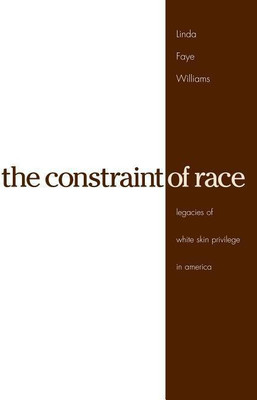The Constraint of Race(English, Paperback, Williams Linda Faye)
Quick Overview
Product Price Comparison
The Constraint of Race offers a challenging new approach to understanding the evolution of American social policy and the racial politics shaping it. Rather than focusing on the disadvantages suffered by blacks in the American welfare state, Linda Faye Williams looks at the other side of the coin: the advantages enjoyed by whites. Her hope is that rendering the benefits of "white skin privilege" more visible will help undermine their acceptance as "normal" and motivate renewed efforts toward achieving a more just and equitable society. Williams begins her analysis by comparing two programs of federal provision in the mid-nineteenth century-the Freedmen's Bureau and the Civil War Veterans' Pension system. Already at this early stage of its development, she shows, the emerging welfare state effectively denied blacks the protections it provided white Americans and simultaneously stigmatized blacks as welfare "dependents." The linkages among race, moral worthiness, and social policy established then have persisted to the present. Her reexamination of key episodes in the later evolution of the American welfare state from the New Deal through the Clinton administration reveals how developments in social policy have advanced the privileges attached to "whiteness" by a variety of mechanisms: the ongoing reinterpretation of the American tradition of liberal individualism in racialized ways; the slow accretion of policy legacies; the construction of "whiteness" itself as a political category; and the normal procedures of coalition building and electoral politics. Through these connected processes, whiteness and the protection of white privilege became fundamental to the operation of American democracy, and their centrality has been continually reinforced by social policy. The result has been a politics in which race is used as a weapon by political parties and candidates to constrain and turn back the American welfare state. Looking to the future, Williams concludes by considering the socioeconomic conditions and political mechanisms that might help overcome the iron grip that white privilege holds on American social politics. "There can be little genuine progress in solving the so-called race problem or in creating the kind of social citizenship all Americans deserve unless and until continuing white skin privilege is openly acknowledged and addressed. In effect, the problem of the twenty-first century is not the color line but finding a way to successfully challenge whiteness as ideology and reality."-From The Constraint of Race


